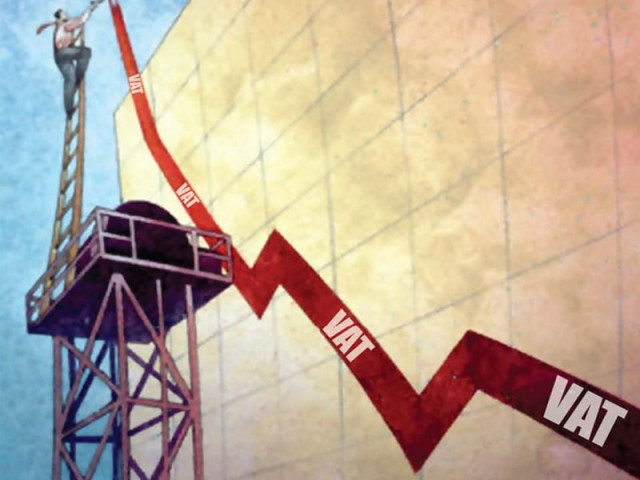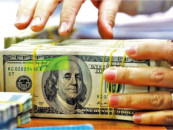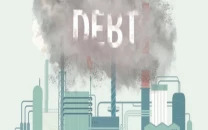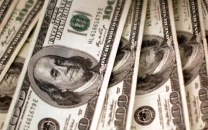Political economy of taxation: The value added tax is happening
Why, despite its vast unpopularity, the tax will be imposed on a revolting public.

It is the great “will they or won’t they” question about Pakistani public policy: will the Zardari administration finally impose the value added tax? Based on the political manoeuvring that has been taking place over the past several weeks, it would appear that the answer is yes.
The economic logic behind the tax is unquestionable. The squeamishness of the faux-populists aside, the tax is a necessary one and will help the government when it eventually decides to get serious about fiscal policy and launch a drive to document the economy.
So why all the fuss about it? Part of it has to do with the extraordinarily poor job that the government has done in selling the tax. At 15%, the VAT would be a reduction in the tax rate compared to the 17% that is levied through the general sales tax. It was to hammer home this point that the government started referring to it as the “reformed general sales tax” (RGST).
According to estimates by the Federal Board of Revenue, the tax is not expected to raise much in revenue in its first year, but, if implemented correctly without the kind of exemptions that have hollowed out the GST, it may eventually take up federal tax receipts to around 12% of the total size of the economy, compared to the abysmal 9.1% for the outgoing fiscal year.
Twelve per cent is still a paltry intake, but it reduces the fiscal deficit by about half, which will create tremendous breathing room in the banking sector for businesses to borrow and grow the economy, as opposed to the federal government sucking in close to 90% of all new lending.
It may even end up reducing the inflation rate down to single digits, mitigating the inflationary effects that those who pretend to care about the poor talk about when opposing the RGST.
These benefits are likely to begin appearing two to three years after the tax is levied, a fact well-known to both the Pakistan Peoples Party (PPP) and the Pakistan Muslim League Nawaz (PML-N). Both parties have reason to see the tax levied, but for very different reasons.
The PPP needs the tax to pass the vote in Parliament for one very simple reason: the ruling party is running out of tricks to keep the government funded and badly needs the IMF to release its last two tranches of the $11.3 billion bailout program. The IMF has made it clear: no RGST, no bailout money. So the PPP is committed to the RGST, whether they like it or not.
I would argue that the PML-N also wants the tax levied, but only so that they can claim the economic benefits of levying the tax as the result of their policies when the party comes to power. And they want those benefits without having paid the political price of initiating and voting for the RGST.
The PML-N leadership is convinced they will win the 2013 elections which are, not coincidentally, two years from now. So while they will vote against the tax, they will also try to make sure to do so in such a way as to not scuttle its approval by Parliament. Then, once the bill has safely been passed by the president into law, they will go on a rampage against the PPP for having imposed “a crushing burden on the people” or whatever other gibberish economic populists use these days.
In the PML-N’s mind, by the time they come into office in 2013, the country will be on the verge of seeing some of the benefits of the tax finally rolling in. This timing issue explains, to me at least, why the PML-N bitterly opposed the passage of the bill earlier.
Imagine if the RGST had been imposed in 2008: by 2011, the PPP would have created enough fiscal space for itself to successfully complete the IMF program, reduce the deficit and reduce inflation. As it stands, the PPP will face the backlash now but, if they lose the 2013 election, will not be around to take the credit for the benefits.
Then again, maybe I am just imagining more political and policy competence on the part of the PML-N than may be warranted
Published in The Express Tribune, May 16th, 2011.



















COMMENTS
Comments are moderated and generally will be posted if they are on-topic and not abusive.
For more information, please see our Comments FAQ